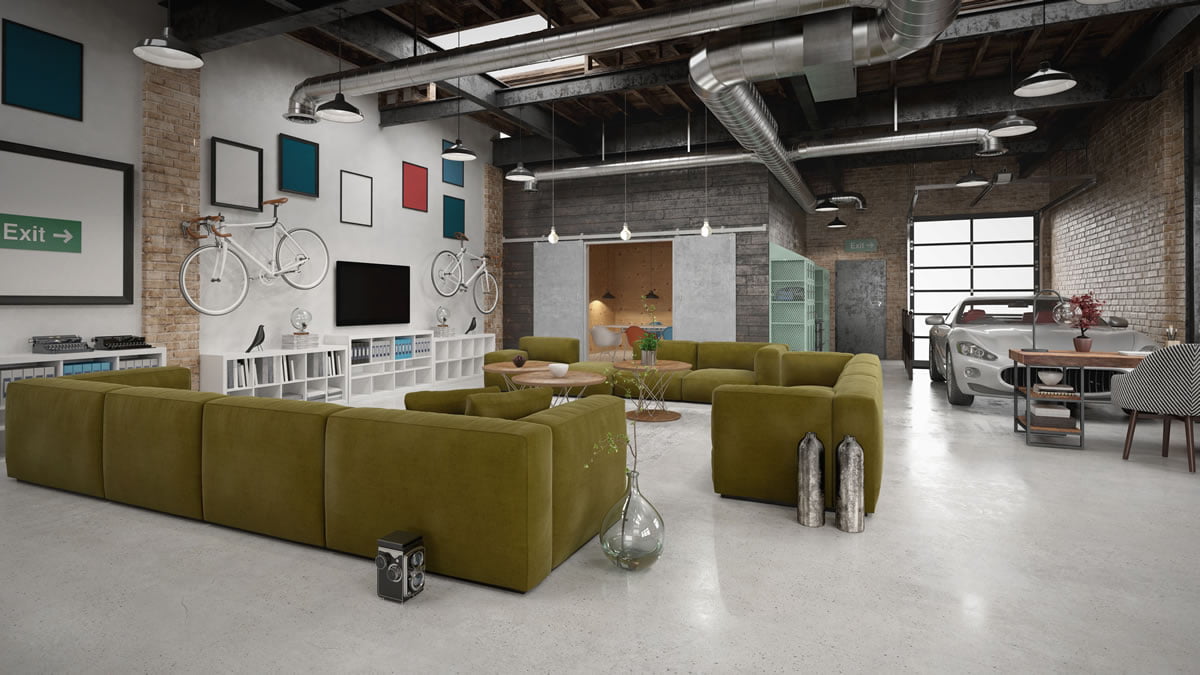
Air conditioning is essential for keeping large spaces comfortable during hot summer months. Whether you’re responsible for cooling a warehouse, gymnasium, or convention center, there are several tips and considerations to keep in mind when selecting and operating an air conditioning system for large spaces. In this article, we’ll discuss some tips for cooling big areas with air conditioning.
System Size and Type
One of the most important considerations when choosing an air conditioning system for a large space is the size and type of the system. An undersized system will struggle to cool the space, while an oversized system will waste energy and result in high energy bills. A professional HVAC contractor can help you determine the appropriate system size for your space based on factors such as the size of the space, ceiling height, insulation, and number of occupants.
When it comes to the type of system, there are several options to consider for large spaces, including:
Central Air Conditioning
- A central air conditioning system consists of a large unit outside the building and a network of ducts and vents throughout the space. This type of system is ideal for large spaces with multiple rooms or areas.
Packaged Air Conditioning
2. A packaged air conditioning system consists of a single unit that is installed outside the building and connected to ducts and vents throughout the space. This type of system is ideal for large spaces with a single open area, such as a warehouse or gymnasium.
Split System Air Conditioning
3. A split system air conditioning system consists of an outdoor unit and one or more indoor units that are installed on the wall or ceiling. This type of system is ideal for large spaces with individual rooms or areas.
Efficiency
Efficiency is another important consideration when selecting an air conditioning system for a large space. An inefficient system can result in high energy bills and maintenance costs. When evaluating the efficiency of an air conditioning system, consider the following:
SEER Rating
4. The SEER (Seasonal Energy Efficiency Ratio) rating measures the energy efficiency of an air conditioning system. The higher the SEER rating, the more energy-efficient the system is.
Programmable Thermostat
5. A programmable thermostat allows you to set the temperature of your space based on occupancy and use. This can help to save energy and reduce costs.
Insulation
- Proper insulation can help to reduce energy loss and improve the efficiency of your air conditioning system.
Maintenance
Proper maintenance is essential for keeping your air conditioning system running smoothly and efficiently. This is especially true for large spaces, where the system may be under more stress and require more frequent maintenance. Consider the following maintenance tips for your air conditioning system:
Regular Inspections
2. Regular inspections can help to identify potential problems before they become major issues.
Filter Replacement
3. Regular filter replacement can help to keep your air conditioning system running efficiently and prevent the buildup of dust and debris.
Coil Cleaning
4. Coil cleaning can help to improve the efficiency of your air conditioning system and prevent the buildup of dirt and debris.
Professional Maintenance
5. Professional maintenance from an HVAC contractor can help to ensure that your system is running efficiently and identify potential problems before they become major issues.
Air Distribution
Proper air distribution is essential for cooling large spaces effectively. Consider the following tips for improving air distribution in your space:
Ductwork
6. Properly designed and installed ductwork can help to ensure that air is distributed evenly throughout your space.
Ceiling Fans
7. Ceiling fans can help to improve air circulation and make your space feel more comfortable.
Zoning
8. Zoning allows you to control the temperature of different areas of your space independently. This can help to improve air distribution and save energy.
Conclusion
Cooling large spaces can be a challenge, but with the right air conditioning system and
proper maintenance, it is possible to keep these areas comfortable and efficient. When selecting an air conditioning system for a large space, it’s important to consider the size and type of the system, as well as its efficiency and maintenance needs. Additionally, proper air distribution is essential for effective cooling, and options such as ductwork, ceiling fans, and zoning can help to achieve this.
It’s also important to remember that the use of air conditioning in large spaces can have an impact on the environment. According to the US Environmental Protection Agency, air conditioning accounts for around 6% of the total electricity produced in the United States, and the majority of this electricity is generated by burning fossil fuels, which contributes to greenhouse gas emissions and climate change. Therefore, it’s important to consider energy-efficient options and strategies, such as the use of programmable thermostats and regular maintenance, to reduce the environmental impact of air conditioning in large spaces.
In conclusion, selecting and operating an air conditioning system for large spaces requires careful consideration and attention to detail. By taking into account factors such as system size and type, efficiency, maintenance, and air distribution, it is possible to keep these areas comfortable and efficient while also reducing the environmental impact of air conditioning. Consult with a professional HVAC contractor to ensure that your air conditioning system is properly installed, maintained, and operated to maximize its effectiveness and efficiency.


